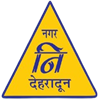Deendayal Upadhiyay Anyotday Yojana
The mission addresses the fundamental infrastructural problems of the poor by improving the livelihoods of urban poor families and reducing poverty and inequalities through providing access to beneficial self-employment and skilled wage employment opportunities. The mission will focus on ensuring necessary shelter with essential services for various stages of urban homeless people. Additionally, the mission will focus on providing suitable locations for livelihoods of urban and migrant workers, facilitating institutional credit, social security, and skill development, so that access to expanding markets can be enhanced. The objective of the mission is to uplift urban poor families by empowering urban poor women through self-help groups and self-employment to achieve livelihood sustainability, self-reliance, and economic empowerment.
Deendayal Antyodaya Yojana – National Urban Livelihoods Mission:
To improve the livelihoods of urban poor families by providing accessible wage employment opportunities, the Deendayal Antyodaya Yojana – National Urban Livelihoods Mission was launched in 2012 by the Ministry of Housing and Urban Poverty Alleviation, Government of India.
The mission was started in the state of Uttarakhand on 1st April 2014. Currently, the mission is operational in 16 cities of the state, including all six municipal corporations: Dehradun, Haridwar, Roorkee, Kashipur, Rudrapur, Haldwani, and other cities like Pithoragarh, Almora, Bageshwar, Champawat, Nainital, Rudraprayag, Chamoli, Gopeshwar, Tehri, Pauri, and Uttarkashi, etc. Under this mission, the following services/facilities are available.
Employment through Skill Training and Placement:
Under this scheme, unemployed urban poor are provided skill development training in trades aligned with market demand such as electronics, electricals, security, fabrication, food processing, textiles, beauty culture and hairdressing, garment embroidery, stitching, etc. Beneficiaries who pass the examination are provided placement and/or linkage to self-employment ventures for a minimum of 50% of the beneficiaries. Successful beneficiaries and their placements are tracked for at least 6 months.
Self-Employment Program:
Under this scheme, incentives and financial support are provided for individual and group enterprises through linkage with banks. Urban poor individuals are provided loans up to ₹2 lakh at 7% interest for establishing individual enterprises. No guarantee is required for this loan. Urban poor women’s groups or enterprises formed by the mission can get loans up to ₹10 lakh at 4% interest rate. Interest subsidy on the above loans is provided to banks. If individual and group entrepreneurs repay on time, loan facilities at subsidized interest rates of 7% are arranged. An additional 3% interest subsidy is issued to banks for women’s groups.
Social Organization and Institution Development:
Under this component, self-help groups are formed through resource institutions. These groups are organized into a three-tier collective structure (self-help groups, area-level federations, and urban livelihood centers). Under the scheme, recurring grants of ₹10,000 and ₹50,000 are provided to self-help groups and area-level federations respectively. Urban livelihood centers can be established through municipal-level federations. Grants of up to ₹10 lakh per unit are approved.
These centers will bridge the gap between demand and supply of goods and services produced by the urban poor. Additionally, these centers provide information and business support services to the urban poor. At the municipal level, urban poor women are organized and encouraged for livelihoods.
Programs for Urban Street Vendors:
Due to the lack of registration, street vendors in urban areas feel insecure. Also, as there are no designated places for them, they face great difficulties in conducting their business. Under this scheme, municipal-level surveys are conducted to identify safe vending sites for street vendors. Based on this, the following facilities are provided to street vendors:
- Issuance of identity cards to street vendors by urban local bodies.
- Development of urban street vendor plans and street vending markets.
- Opening of basic savings bank accounts for street vendors and linkage with banks.
- Linkage with banks for working capital needs.
- Coordination of skill development and social security.
Shelter Scheme for Urban Homeless — Night Shelter
Under this scheme, permanent community housing units, called night shelters, are constructed in cities at the rate of one shelter per 100,000 urban population and also at district headquarters. Each night shelter provides accommodation for 50 to 100 individuals. Additionally, all basic amenities such as kitchen, water, toilets, electricity, and recreation facilities are ensured. Among the residents, 10% (for elderly, disabled, differently-abled, or widows) are provided free services and other benefits.
Key facts regarding these night shelters are as follows:
- Minimum space availability per person is 5 square meters or 50 square feet.
- Social security and linkages for entitlements are ensured.
- Construction costs are shared in a 90:10 ratio between the Government of India and others.
- Operation and maintenance costs are also shared in a 90:10 ratio with the Government of India for 5 years.
Capacity Building and Training
To ensure better implementation and smooth operation of the Pandit Deendayal Antyodaya Yojana — National Urban Livelihoods Mission (NULM), a Program Management Unit has been formed at the state level. Two State Mission Managers have been appointed in this unit. Additionally, City Mission Management Units have been established in all 16 mission cities of the state to implement the mission activities. Each unit includes appointments of City Mission Managers and Social Organizers.
- The State Urban Development Authority has been designated as the nodal agency for implementing the National Urban Livelihoods Mission.
- Training and other capacity-building support for State and City Mission Management Units have been approved, with an allocation of ₹7,500 per member.
Beneficiary:
-
Benefits:
-
How To Apply
Please visit the site.


